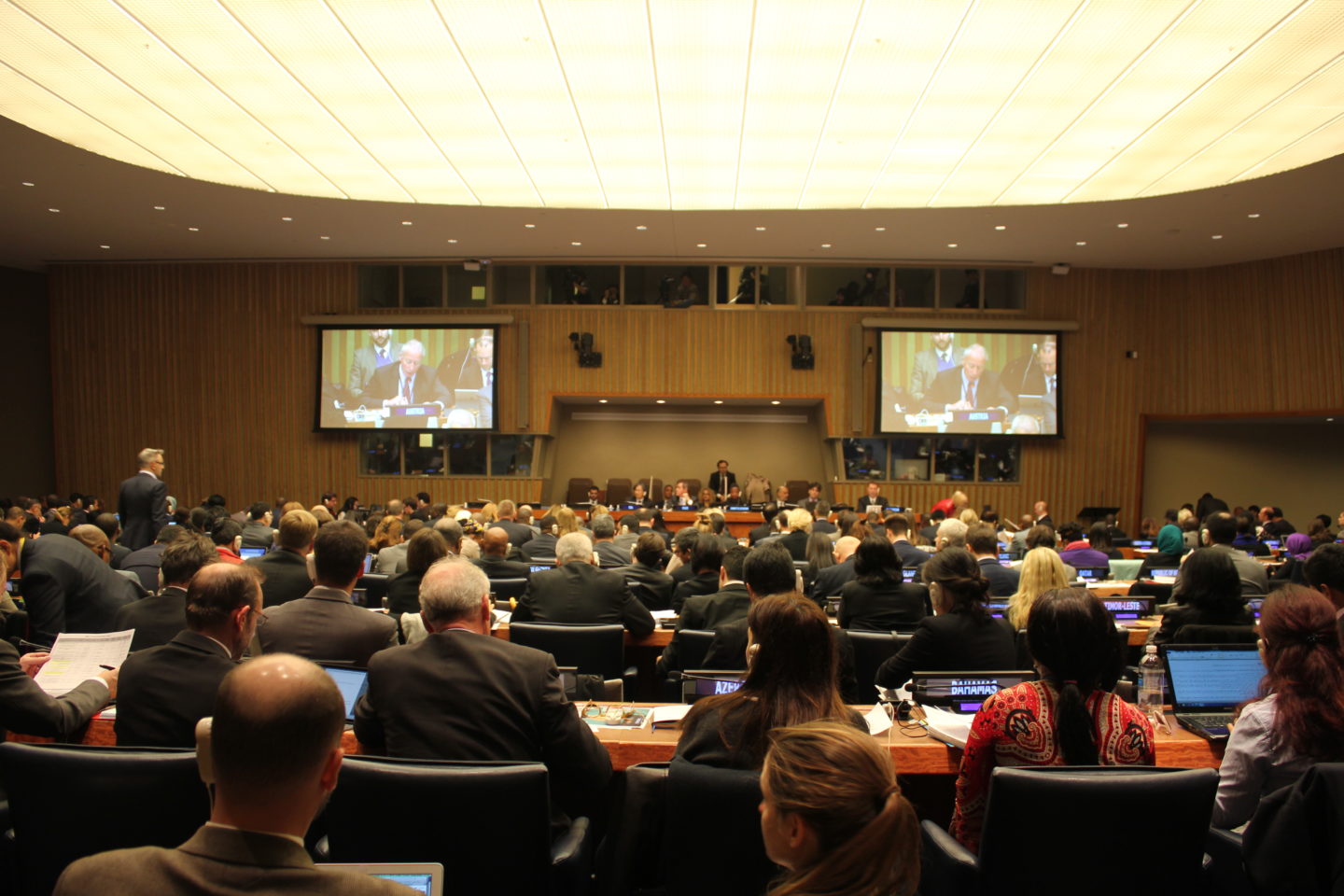The UK government has been lambasted for rejecting a move by the United Nations to outlaw nuclear weapons.
A meeting of a key UN committee in New York agreed late last Thursday night to begin negotiations for a nuclear weapons ban treaty in 2017, despite fierce opposition from Theresa May’s Tory government and other nuclear weapons states.
Countries voted 123 to 38 in favour of the ban, with 16 abstaining. The main nations backing the move included Austria, Brazil, Ireland, Mexico, Nigeria and South Africa, with the US, Russia, France, Israel and the UK voting against and China, India and Pakistan abstaining.
The vote has been hailed as historic by disarmament campaigners. They accused nuclear-armed states of boycotting the discussions and “pressurising” smaller states not to back the ban.
“For seven decades, the UN has warned of the dangers of nuclear weapons,” said Beatrice Fihn, executive director of the International Campaign to Abolish Nuclear Weapons. “Now the majority of states have finally resolved to outlaw them.”
She argued that a treaty prohibiting nuclear weapons would make it more difficult for countries to keep them, close loopholes in the international legal regime and spur long-overdue action on disarmament.
“A majority of the world’s nations consider the prohibition of nuclear weapons to be necessary, feasible and urgent,” Fihn added. “They view it as the most viable option for achieving real progress on disarmament.”
The secretary of the Scottish Campaign for Nuclear Disarmament, Janet Fenton, accused the UK government of “arm-twisting” to try and force countries not to back the vote. “The importance of the change a nuclear weapons ban treaty will have for UK defence strategy and global politics cannot be overstated,” she said.
“The people of Scotland do not agree that the UK has made a democratic decision to renew Trident. Brexit is not the only aspect of UK foreign policy that puts Scotland in democratic deficit in the global community as well as at home.”
Bill Kidd, an SNP MSP and co-president of the International organisation, Parliamentarians for Non-Proliferation and Nuclear Disarmament, described the UN vote as “a very powerful symbol of the feelings of people the world over that nuclear weapons aren’t needed and aren’t wanted.”
He said: “Only the arrogance of politicians in the nuclear weapons states stands in the way of a world without these weapons of mass-murder where real international security can be built.”
Kidd argued that the Scottish Government was in the mainstream of global opinion. “While the Tories are determined to build new nuclear weapons regardless of the cost to the public purse, the SNP is clear in our opposition – and we’re joined by the clear majority of countries around the world.”
The Green MSP, John Finnie MSP, accused the UK government of abandoning nuclear disarmament. “Instead of siding with the overwhelming majority of the world’s nations in voting to set up a conference to negotiate ways of prohibiting and eliminating weapons of mass destruction, the UK voted with the nuclear club states who continue to stand in the way of progress on disarmament,” he said.
Earlier last week European Parliament in Strasbourg voted by 415 to 124 to invite European Union member states to “participate constructively” in next year’s UN negotiations on a nuclear ban. Despite this, Germany, Italy, Spain, Poland, Denmark and Belgium voted against the talks.
The UK government insisted it was committed to a world without nuclear weapons in line with its obligations under the Nuclear Non-Proliferation Treaty. “The UK voted against the resolution at the UN General Assembly First Committee as we do not believe that the negotiations it mandates will lead to progress on global nuclear disarmament,” said a spokesman for the UK Foreign Office.
“We firmly believe that the best way to achieve a world without nuclear weapons is through gradual multilateral disarmament negotiated using a step-by-step approach and within existing international frameworks.”
Photo thanks to the International Campaign to Abolish Nuclear Weapons.














